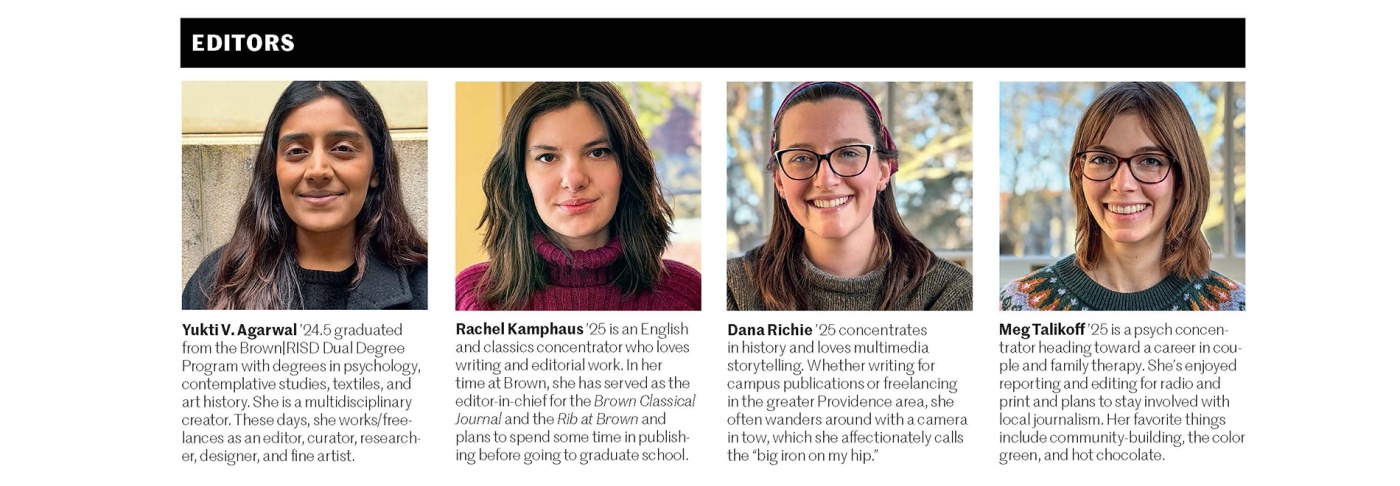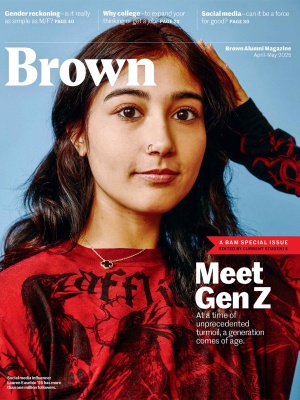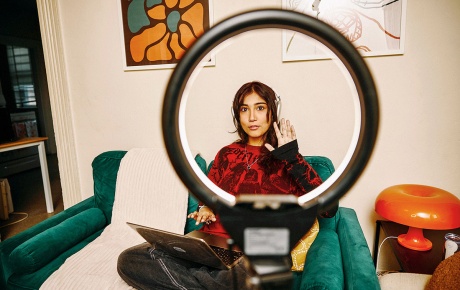In Our Own Words
From the Editors
Six in 10 U.S. companies have fired a recent college graduate they hired this year. We’re not surprised. We’re aware of the narrative about Gen Z. Entitled and coddled. Addicted to our phones. Obsessed with ourselves and our identities. Unwilling to read. Bad workers (for anti-capitalist reasons, of course).
Much of what has been written about us comes from those who stand outside of our experiences. But, like any generation, we cannot—and should not—be confined to an archetype. While we are the first true digital natives, we’re not all illiterate or lazy or radical. However, we do find ourselves coming of age in a rapidly changing and fractured world that we struggle to make sense of.
That’s why we bring you this issue.
For the first time, BAM was conceptualized, planned, and delivered by four graduating seniors. We’re behind the ideas, the stories, and the questions this issue asks. By providing a window into our world—the problems we care about, the uncertainty that grips us, and the entertaining ways we find joy—we hope to introduce you to Gen Z, on our terms.
While our concerns differ from those of generations before us, our stories are your stories, too. We are your children, your students, your colleagues. And our priorities—stay safe, promote justice—are age old.
Some topics we tackle in this issue may feel foreign. In one feature, we report on how Gen Z grapples with gender and gender fluidity—concepts that have been politicized in recent years and weaponized under the current presidential administration. By speaking to researchers and students in the Brown community and beyond, we show that new terms like nonbinary and gender fluid are not radically new ideas as much as new vocabulary to express old feelings.
Additionally, we profile a number of social media “influencers”—people who share curated versions of their lives online. While public opinion often lingers on the (very real) dangers of social media and chronic digital engagement, the students we call “influencers” more often identify as “content creators,” public citizens who leverage their platforms to inform and build connections.
At the same time, our generation experiences familiar anxieties about life after Brown—recently dialed up to an extreme. As the cost of college and living rises, students stress about securing high-power internships earlier and earlier. Even high schoolers are flooding professors’ inboxes, scrambling for research opportunities. Is this race to the top destroying the liberal arts philosophy that Brown claims to stand for? We explore this in our feature on pre-professionalism.
Soon, the four of us will be abruptly thrust out of Brown’s storied gates. What comes next, as our generation grabs the reins? Our country is nose-diving into chaos at alarming speed. Will human rights still exist? Will we be employed? Will home ownership be possible? What will Brown’s campus look like when we visit? Will Providence be underwater? Is my resume any good? Do you happen to have any connections in the dying journalism industry?
Keep scrolling!






